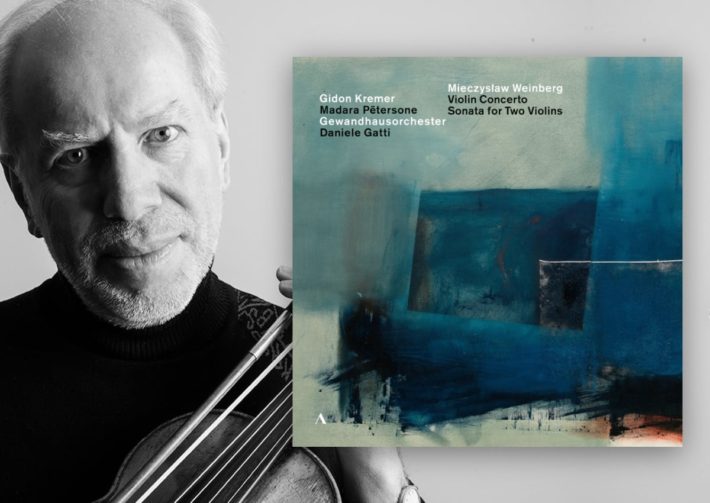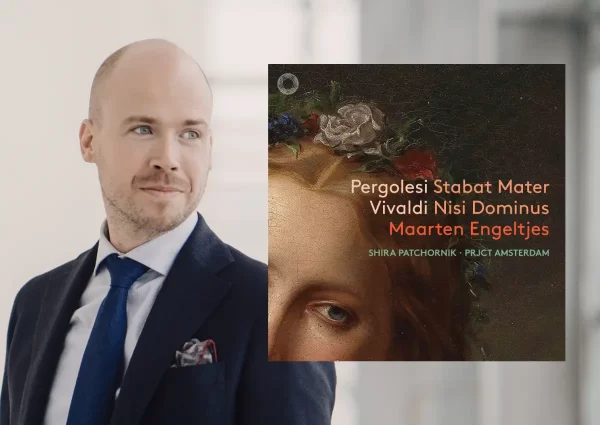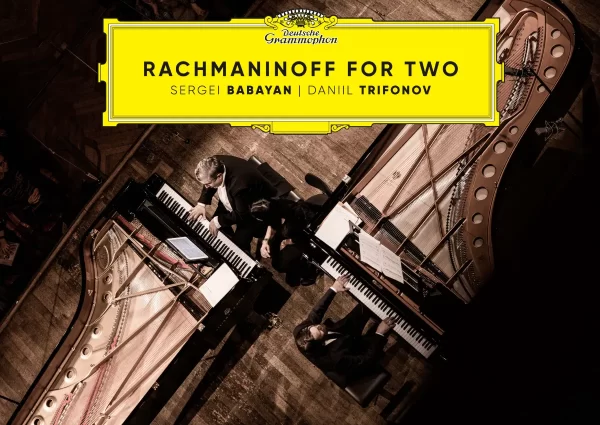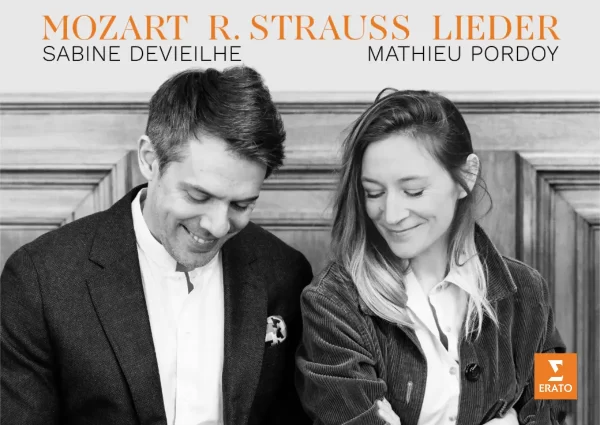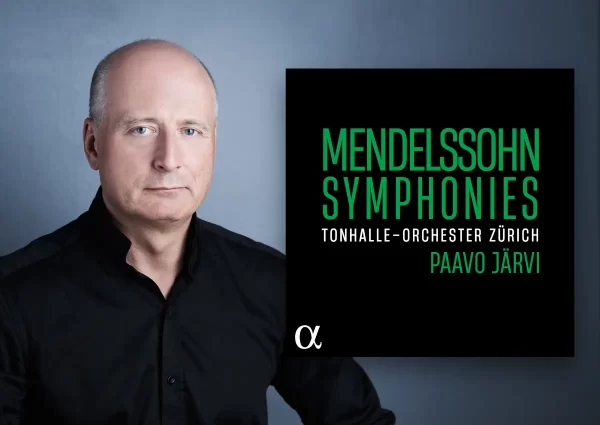Gidon Kremer is no stranger to the music of Mieczysław Weinberg, having made several recordings of music by the composer. Surprisingly, it is only now Kremer makes his recording of the Violin Concerto by a composer he has such an affinity with. On this release from Accentus Music, Kremer is paired with Daniele Gatti who directs the Gewandhausorchester Leipzig as part of the composer’s centenary celebrations. Completing the album is Weinberg’s Sonata for Two Violins, in which Kremer is joined by Madara Pētersone.
Kremer and Gatti take the concerto slower overall than Linus Roth, Benjamin Schmid or Ilya Grubert, but maintain a clear overarching vision, unifying the entire work; while this is, to me, a convincing interpretation, it will not persuade every listener. The more relaxed approach mutes the colors, diluting the driven energy in the outer movements and lessening the Shostakovich-like language of the work. That being said, It’s clear that Kremer the musicologist understands the work and emphasizes the development of themes and motifs clearly. When ideas are repeated, most notably in the second movement, Kremer executes them with contrasting characteristics, sometimes like a distant echo. This proves thought-provoking and is not attempted on other versions.
Kremer’s tone is consistently warm and deep, though can sound one-dimensional. The stopped notes of the opening are very rounded, not as austere as on Roth’s version. Kremer seems to treat the violin part very much as a quasi-song without words, giving the work an expressive and quite unique nature. The transition from the second movement to the slower third is distinguished, but while containing some bite, the softness of Kremer’s tone lessens the impact. The extended sections for solo violin are executed with chill yet lacks in pungency.
The more romantic moments bloom with warmth and radiance from both Kremer and the orchestra, but at the end of the third movement Kremer’s tone sadly wavers, lacking the same clarity and precision he has elsewhere, one of the downfalls of recording a live performance. Kremer’s use of vibrato is remarkably subtle, and the different speeds and control are impressive, yet in this particular work, Kremer is too reverent and refined to be completely convincing.
Related Classical Music Reviews
- Review: Weinberg – Symphony No. 2 & 21 – Mirga Gražinytė-Tyla
- Review: Martinů – Violin Concertos – Frank Peter Zimmermann
- Review: Korngold – Violin Concerto, Sextet – Haveron, Wilson
The recording of the Violin Concerto was made live in the Gewandhaus Leipzig in February 2020, and that ambiance is evident throughout. The balancing is a little odd at times; the horns and brass sound quite distant, while the celesta sounds very close to the soloist. Luckily, the balancing between the strings and woodwind is proportionate, allowing the playing from these sections to be appreciated.
Listening to other versions, I’ve found Linus Roth’s Concerto recording difficult to surpass. He brings a driving energy to the outer movements, celebrating the virtuosity. His slower inner movements have greater contrast and intensity, while his vision emphasizes the Shostakovich-like qualities more vividly. While Roth paces the work with great presence and integrity, Benjamin Schmid drives the work too hard, detracting from the more expressive elements and proving there is a fine line between invigorating to rushed performance.
The Sonata for Two Violins which follows is nicely executed. My reservation, again, is with the overall approach to this music; The tone of the two violinists match, but once again, the classical elegance doesn’t bring out the darker, more anguished aspects of Weinberg’s writing. While the first and second movements have similar pacing to Stefan and Gundula Kirpal, the latter version brings a brighter, more angular tone when needed, expressing the wider emotional range and resulting in a more persuasive and impassioned performance.
It’s regrettable that the concerto wasn’t a studio recording like the sonata, with the attention to balance that would have brought. There is much insight into the structure of the Concerto, but Kremer’s and Gatti don’t bring the same peaks of excitement as Roth, in his superb version with the Deutsches Sinfonie-Orchester Berlin and Mihkel Kütson. The short playing time of 50 minutes adds to the disappointment, considering Kremer’s ongoing dedication to Weinberg’s under-represented music.

Weinberg – Violin Concerto, Sonata for Two Violins*
Gidon Kremer – Violin
Madara Pētersone – Violin*
Gewandhausorchester Leipzig
Daniele Gatti – Conductor
Recommended Comparisons
Read more classical music reviews or visit The Classic Review Amazon store
Follow Us and Comment:
Get our periodic classical music newsletter with our recent reviews, news and beginners guides.
We respect your privacy.

